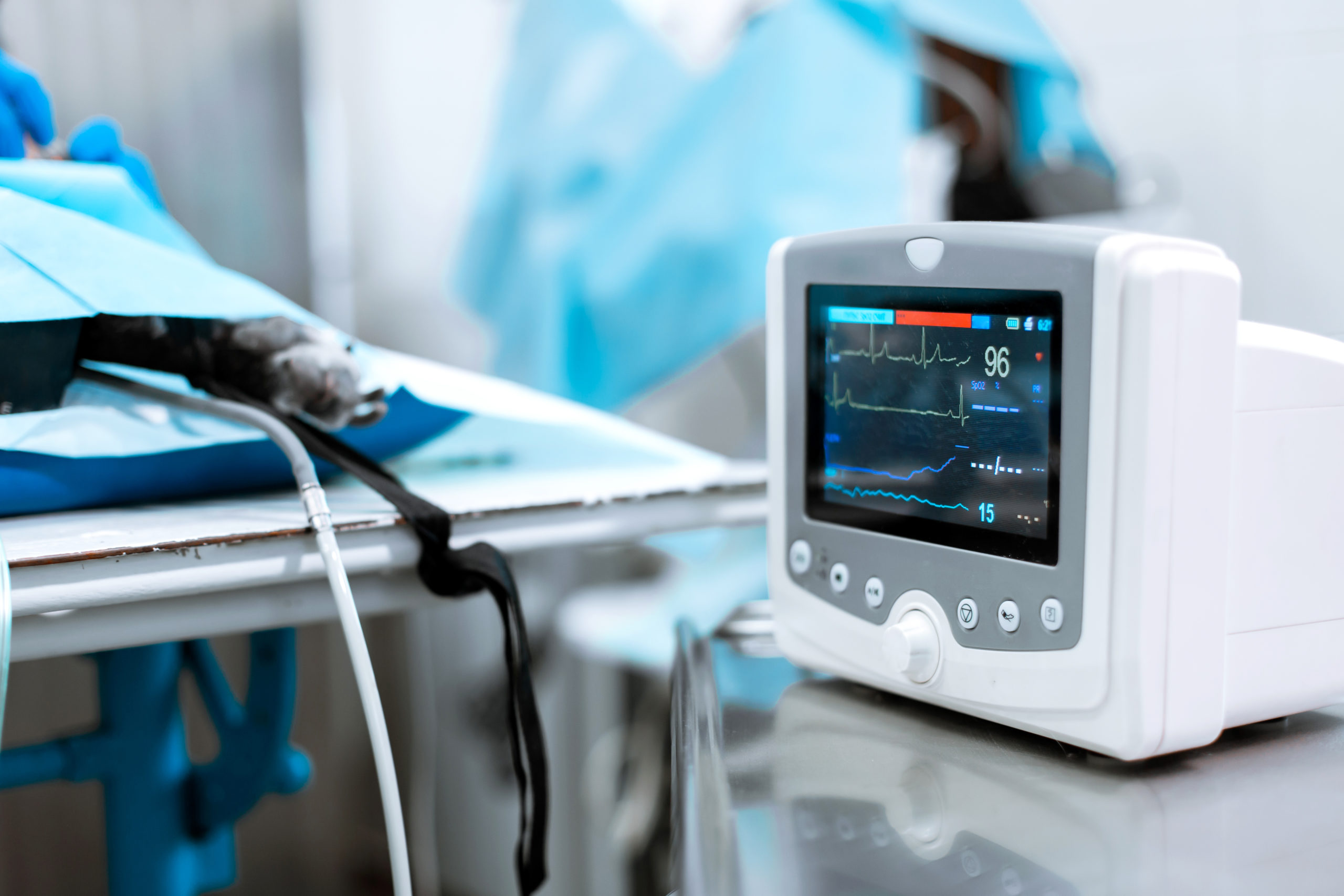
Pet Orthopedic Surgery
If your pet has recently started experiencing pain or has chronic pain, it could result from a variety of orthopedic conditions, such as hip dysplasia. Whether these orthopedic issues result from age, breed or injury, they can impact your pet’s overall quality of life.
We at Aquadale Veterinary Clinic work with a board-certified orthopedic surgeon that can travel directly to our clinic to perform surgeries. If your pet requires orthopedic surgery, we will work with you as well as the surgeon to schedule appropriately.
Please give us a call for more information regarding our traveling orthopedic surgeon schedule and to set up an initial visit.
Veterinary Orthopedic Surgery Services
Cruciate Repair
Tearing the cranial cruciate ligament is one of the most common pet injuries. When this ligament tears, the shin bone slides forward and meets the thigh bone. As these bones touch, the cartilage becomes unstable and may cause your pet to develop osteoarthritis.
Your pet may have a torn cranial cruciate ligament if they have one of these common symptoms:
- Obvious pain
- Stiffness in the hind legs
- Swelling of the knee joint
- Licking or biting the knee
- Clicking sounds when they walk
- Not using a leg after activities
Since you cannot heal a cranial cruciate ligament tear with medication or rest, your pet must undergo cruciate repair surgery to repair the ligament. Our expert team has years of experience performing cruciate repair surgery and will explain the entire process to ensure you feel comfortable and confident moving forward.
Fracture Repair
If your pet experiences a fall, a bite from another animal or another traumatic event, they may have a bone fracture. Common signs that a pet has fractured a bone include:
- Difficulty getting up and walking
- Picking up or refusing to put weight on the injured limb
- Abnormal movement
- Swelling or pain around the injured site
Undergoing surgical fracture repair may be the best option to help your pet regain mobility with minimal pain in the affected area. Your pet will need anesthesia if they require surgical repair for a fracture. Our skilled orthopedic team will ensure the surgical process is painless, so your pet can return to feeling their best sooner.
Involved Fracture Repair
For more involved fractures, the best action may be to amputate the limb. If your pet experiences a non-repairable fracture, limb amputation will ensure a successful treatment. While it may take longer for your pet to recover from amputation than surgery, this procedure will ensure your pet continues to live a happy and healthy life.
Patella Repair
Many toy and miniature pet breeds are susceptible to patella issues, such as the kneecap slipping out of the groove if it is too shallow. When the patella becomes dislocated, you may notice signs like:
- Visible pain
- Inability to walk
- Difficulty bearing weight on the affected leg
- Greater attention to the knee area, such as increased biting or licking
Patella luxation repair surgery can help your pet regain mobility and restore their quality of life.
How Does Orthopedic Surgery Work?
Orthopedic surgery for pets involves procedures that help to restore your pet’s limbs to their uninjured state and promote healing. Depending on your pet’s specific medical needs, our veterinary surgery team may use bone plates, pins or screws, nylon, casts or artificial joints to achieve their orthopedic surgery goals.
Before starting orthopedic surgery, your pet will undergo heavy sedation and receive supplementary oxygen, as their specific procedure may take a few hours to complete. Since orthopedic surgery is an intensive process, your pet will need blood work and an overall analysis to ensure they are in good health before starting surgery.
What to Expect During Your Pet’s Recovery Period
After their procedure, your pet will require time to recover in the hospital and additional care at home. Our traveling surgeon and technical team will discuss post-operative care to ensure you understand how to help your pet on their road to recovery. If there are any concerns about your pet’s health post-surgery, they may remain at our facility for a few days. This period ensures they are comfortable and fully recovered from their operation.
Your pet will need to rest after surgery, and they are likely to be groggy and confused as the anesthesia wears off. You will also need to ensure your pet is not too active, which may impact the healing process. Administer all prescribed medications as directed during the recovery period and monitor the incision for infections. If your pet experiences any complications, make sure to call our office immediately so we can help your pet recover and feel their best as soon as possible.
What Are the Benefits of Orthopedic Surgery for Your Pet?
Orthopedic surgery effectively improves mobility, reduces pain and improves your pet’s overall quality of life. Some additional benefits of orthopedic surgery are:
- Orthopedic surgery serves as a curative treatment for many joint problems, such as fractures and arthritis.
- Undergoing an orthopedic procedure can improve your pet’s overall mobility and helps them get better faster.
- Orthopedic surgeries aim to prevent complications that may arise if your pet’s condition remains untreated.
- Pets experience no pain during orthopedic surgery since they must receive anesthesia.
- Depending on your pet’s needs, their surgery may be minimally invasive, reducing their bleeding, pain and recovery period.
Schedule an Appointment with our Traveling Orthopedic Surgeon at Aquadale Veterinary Clinic
Are you looking for an Orthopedic veterinarian in Massillon, Ohio? Please give us a call for more information regarding our traveling orthopedic surgeon schedule and to schedule an appointment.
